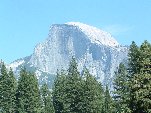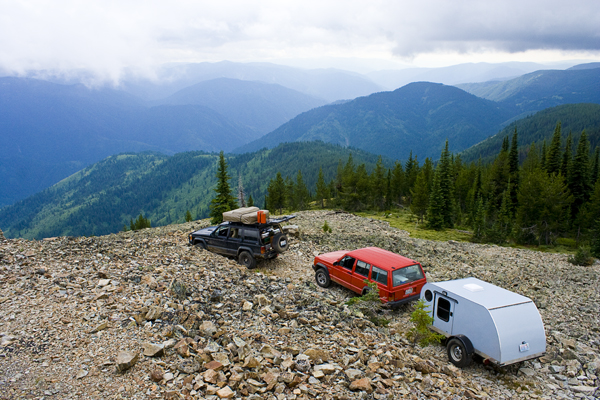 by Ira » Mon Jun 19, 2006 1:59 pm
by Ira » Mon Jun 19, 2006 1:59 pm
I'll never understand the John Wayne allure, and I don't know the true story. Here are two sides about Wayne's non-service during WWII:
----------------------------
This is the pro side:
John "Duke" Wayne a.k.a Marion Michael Morrison always played the same character: a big, tough but sensitive hero who talked straight and met the bad guys head on.
Offscreen Wayne was considered a super patriot and was closely associated with conservative political causes.
This man's stature, style, convictions -- conveyed enduring strength.
According to Ronald Reagan: "Duke had hoped to attend the U.S. Naval Academy and was named as an alternate selection to Annapolis, but the first choice took the appointment. When war broke out, he tried to enlist, but was rejected because of an old football injury to his shoulder, his age (34), and his status as a married father of four.
He flew to Washington to plead he be allowed to join the Navy, but was turned down.
So he poured himself into the war effort by making inspirational war films.
To those at home and others around the world he became a symbol of the determined American fighting man. Duke could not be kept from the front lines.
In 1944 he spent three months touring forward positions in the Pacific theater. Duke went to Vietnam in the early days of the war.
He scorned VIP treatment, insisting he visit the troops in the field. Once he even had his helicopter land in the midst of a battle.
He never displayed hatred toward those who scorned him.
Oh, he could use some pretty salty language, but he would not tolerate pettiness and hate.
He was human all right: he drank enough whiskey to float a PT boat, though he never drank on the job.
His work habits are legendary in Hollywood -- he was virtually always the first to arrive on the set and the last to leave. He often said: "I have tried to live my life so that my family would love me and my friends respect me. The others can do whatever the hell they please."
To him a handshake was a binding contract.
His generosity and loyalty stood out, when a friend needed work -- that person went on his payroll. When a friend needed help, Duke's wallet was open. He went on to raise millions of dollars for private cancer research.
I grew up during the Cold War, and entered the U.S. Army enlisted ranks during the Vietnam Era.
My father was in the infantry for 23 years and went to Vietnam on three separate occasions.
Three of the four of us kids joined the U.S. Army.
He was an honest, good man who cared about his country. The album "America -- Why I Love Her" still gives me goosebumps.
Wayne pours out his feelings about this great nation, and we should be proud the world saw Americans the way he portrayed them.
So I say there is depth and substance to John Wayne, and I'll take him any time over Mark McGwire, (a choice of Lt. Col. Bob Nelson in his comments on the article).
John Wayne has my deepest respect as does Jimmy Stewart, Clark Gable, Elvis Presley and many others who served their country.
-----------------------------
This is the con side:
John Wayne, draft dodger? Oh, what delicious (if cheap) irony! But that judgment is a little harsh. As Garry Wills tells the story in his book John Wayne's America: The Politics of Celebrity (1997), the Duke faced a tough choice at the outset of World War II. If he wimped out, don't be so sure a lot of us wouldn't have done the same.
At the time of Pearl Harbor, Wayne was 34 years old. His marriage was on the rocks but he still had four kids to support. His career was taking off, in large part on the strength of his work in the classic western Stagecoach (1939). But he wasn't rich. Should he chuck it all and enlist? Many of Hollywood's big names, such as Henry Fonda, Jimmy Stewart, and Clark Gable, did just that. (Fonda, Wills points out, was 37 at the time and had a wife and three kids.) But these were established stars. Wayne knew that if he took a few years off for military service, there was a good chance that by the time he got back he'd be over the hill.
Besides, he specialized in the kind of movies a nation at war wanted to see, in which a rugged American hero overcame great odds. Recognizing that Hollywood was an important part of the war effort, Washington had told California draft boards to go easy on actors. Perhaps rationalizing that he could do more good at home, Wayne obtained 3-A status, "deferred for [family] dependency reasons." He told friends he'd enlist after he made just one or two more movies.
The real question is why he never did so. Wayne cranked out thirteen movies during the war, many with war-related themes. Most of the films were enormously successful and within a short time the Duke was one of America's most popular stars. His bankability now firmly established, he could have joined the military, secure in the knowledge that Hollywood would welcome him back later. He even made a half-hearted effort to sign up, sending in the paperwork to enlist in the naval photography unit commanded by a good friend, director John Ford.
But he didn't follow through. Nobody really knows why; Wayne didn't like to talk about it. A guy who prided himself on doing his own stunts, he doesn't seem to have lacked physical courage. One suspects he just found it was a lot more fun being a Hollywood hero than the real kind. Many movie star-soldiers had enlisted in the first flush of patriotism after Pearl Harbor. As the war ground on, slogging it out in the trenches seemed a lot less exciting. The movies, on the other hand, had put Wayne well on the way to becoming a legend. "Wayne increasingly came to embody the American fighting man," Wills writes. In late 1943 and early 1944 he entertained the troops in the Pacific theater as part of a USO tour. An intelligence bigshot asked him to give his impression of Douglas MacArthur. He was fawned over by the press when he got back. Meanwhile, he was having a torrid affair with a beautiful Mexican woman. How could military service compare with that?
In 1944, Wayne received a 2-A classification, "deferred in support of [the] national . . . interest." A month later the Selective Service decided to revoke many previous deferments and reclassified him 1-A. But Wayne's studio appealed and got his 2-A status reinstated until after the war ended.
People who knew Wayne say he felt bad about not having served. (During the war he'd gotten into a few fights with servicemen who wondered why he wasn't in uniform.) Some think his guilty conscience was one reason he became such a superpatriot later. The fact remains that the man who came to symbolize American patriotism and pride had a chance to do more than just act the part, and he let it pass.
-----------------------------------------------
Here we go again!







